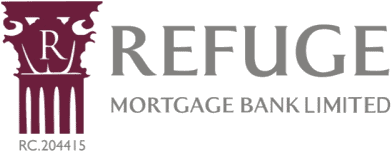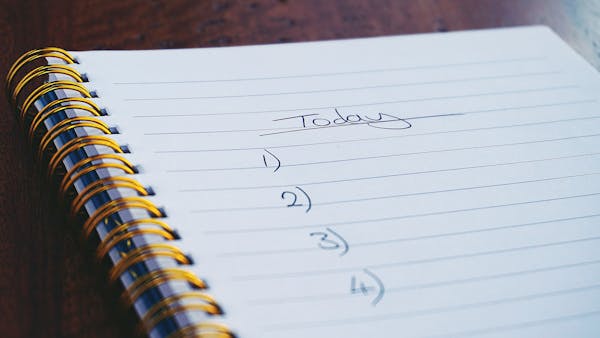If you’re buying your first home, you need to know certain things about the mortgage process.

If you’re in the market for your first home, the process may seem pretty daunting, especially getting your first mortgage. However, the more you know about mortgages, the better prepared you’ll be, so here are 15 things you should know that can get you ready for the application process and possibly save you money.
- Know your credit score and what it means to your mortgage
Your credit score can make a big difference in how much home you can afford and how much interest you’ll end up paying. Before you start the homebuying process, it can be a good idea to check your credit report and to do damage control if necessary. - Estimate how much you can borrow
Lenders generally use two different debt ratios to determine how much you can borrow. The short version is that your monthly housing payment (including taxes and insurance) should be no more than 28% of your pre-tax income, and your total debt (including your mortgage payment) should be no more than 36%. The ratio that produces the lower payment is what the lender will use. Many lenders have more generous qualification ratios, but these are traditionally the most common. - Don’t overextend yourself
If qualify for a certain mortgage amount doesn’t mean that you have to max out your budget. Be sure that your new mortgage payment not only fits your bank’s standards but your budget as well.
- Get your documentation in order
When you apply for a mortgage, you’ll need to document your income, employment situation, identity, and more, so it can be a good idea to start gathering the necessary documentation before you walk into a lender’s office. - Get a mortgage pre-approval before you start shopping
To be clear, you don’t need a pre-approval to start looking at houses. However, since a pre-approval is essentially the same as a full mortgage approval, just without a specific home in mind, it can be an extremely valuable shopping tool. Specifically, if you submit a pre-approval along with your offer, it tells the seller that you’re a serious buyer who is not likely to run into trouble when obtaining financing. One caveat: A pre-approval and pre-qualification are two different things. A pre-qualification is based solely on the information you provide and is not a commitment to lend money, therefore it doesn’t carry nearly as much weight. - How much of a down payment do you have?
The mortgage industry standard is a 20% down payment. However, you may be able to get a conventional mortgage with significantly less money upfront — as low as 5% of the purchase price in many cases. The point is that while a higher down payment will lower your monthly housing costs, you may be able to get into a home with less money in savings than you think.
- Closing costs don’t have to add to your out-of-pocket expenses
Generally speaking, you can expect closing costs to be in the neighborhood of 2%-3% of your mortgage principal amount. So, on a ₦20,000,000 mortgage, you can expect a bill of up to ₦600,000 that must be paid when you get the keys.
However, it’s perfectly acceptable to work seller-paid closing costs into your offer to reduce your out-of-pocket expense. In other words, if you want to offer ₦19,500,000 on a home, you can offer ₦20,000,000 and ask the seller to pay up to ₦500,000 in closing costs for you. This can be an excellent strategy for first-time buyers with limited savings to improve their ability to get a mortgage. - Consider an NHF loan if your credit history isn’t great
Another option is the NHF mortgage, which is designed for borrowers with qualifications that don’t meet the standards of conventional lenders. - Budget for mortgage insurance, if necessary
If you put less than 20% down on your mortgage, you’ll probably have to pay private mortgage insurance or PMI, so be sure to budget for this when shopping. Mortgage insurance rates can vary significantly, depending on your credit, the length of your mortgage, how much your down payment is, and other factors. However, it can add a significant amount to your payment, so be sure to consider it.
- Shop around for a low rate
One common mistake among first-timers and repeat buyers alike is accepting the first mortgage that’s offered. A seemingly small difference in rates can save you money for a 30-year mortgage, and as long as all of your mortgage applications take place within a short period, the additional inquiries won’t hurt your credit score. - Don’t forget about smaller lenders
When you’re shopping around, don’t just check the big national mortgage lenders. Some regional or local banks may offer unique lending programs, especially for first-time homebuyers. - Consider a 15-year mortgage
If you can afford the higher payments or are willing to buy a less expensive home, a 15-year mortgage can save you hundreds of thousands of nairas in interest and can allow you to own your home free and clear in half the time. Fifteen-year interest rates are about one percentage point lower than 30-year rates, and you might be surprised how much the combination of a lower rate and shorter amortization period can save you.
- Fixed or adjustable?
For the majority of homebuyers, a fixed-rate loan is the best choice, especially in a low-interest environment. However, if you don’t plan on being in the home you buy for more than a few years, an adjustable-rate mortgage could save you thousands of dollars in interest. - Expect a few hassles before closing
In a perfect world, you could apply for a mortgage, have the home inspected, and show up at the closing table a month later to wrap things up. Sometimes that happens, but it’s rarely that easy. More often than not, there are some hassles along the way. - After you apply, don’t use your credit until you have the keys in hand
It’s a good practice not to use your credit for anything out of the ordinary between the time you’re approved for your mortgage and when you close on the home.


